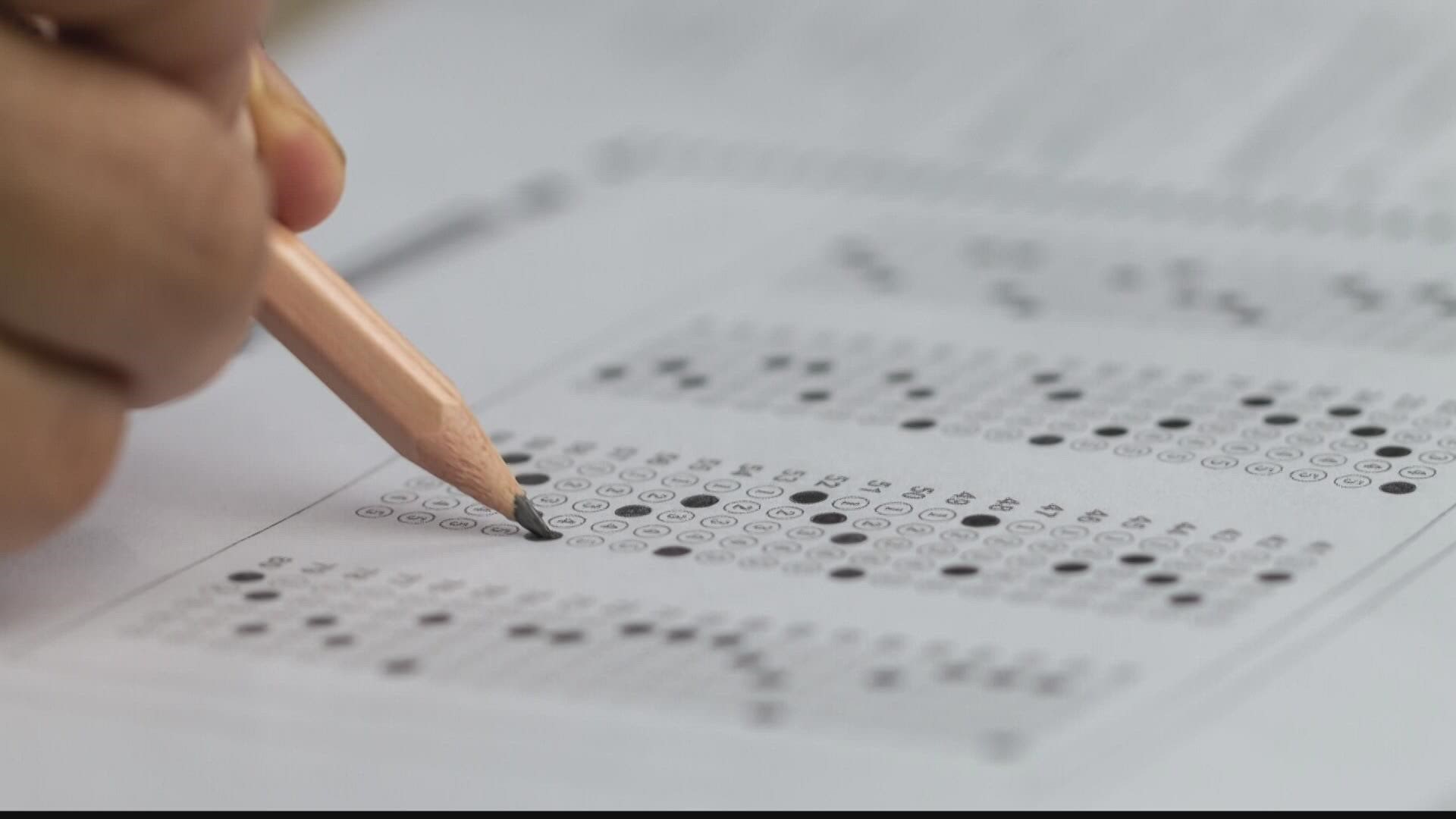ATLANTA — After a two-year hiatus, Milestones tests are back in schools, and this year, the scores will count.
In 2020, the pandemic put testing on hold for everyone and last year, in 2021, taking the test was optional.
According to the Georgia Department of Education, the “percent of enrolled students tested ranged from a high of 79% in third grade to a low of 55% in high school.” The test, which usually accounted for 20% of a high schooler's total grade, had the option of counting for as little as 0.01% of a student’s total grade.
“Pretty much made them negligible and not even count,” Hall County Deputy Superintendent Kevin Bales said.
After a two-year pandemic that turned the education system upside down, there are some butterflies as testing begins this week.
“We recognize that we’ve got kids that have got learning gaps that have taken place over the last couple of years. And so, I do think there’s some anxiousness on the part of adults about what is this testing season going to reveal?” Bales added.
He said – in a way – it’s nice to get back to a sense of normalcy, but he admits the stakes are high.
For high schoolers, these tests will once again account for 1/5 of their total grade.
“That is a big change because now we’re back to our 20% mark. So, we have a lot of high schoolers that have a vested interest in making sure they do their absolute best this week,” Bales said.
For elementary schoolers, it could decide, among other criteria, whether they move on to the next grade. Third, fifth and eighth graders take the test.
However, the Georgia DOE says most districts have waived the pass-fail requirement this year. Decisions on whether to mandate summer school or remediation based on Milestones scores are made at the local district level.
Hall County said they’re not mandating summer school even if a child fails. They’ll work with parents to figure out the best solution.
Lisa Morgan with the Georgia Association of Educators said students deserve a little grace this year, too.
“No matter how much we want to say things are back to normal in our classrooms, they are not. Our students are still experiencing family members becoming ill,” she said. “We have been in a pandemic for two and a half years and our students have been surviving a pandemic. We cannot expect that our students have learned at the same rate at the same time.”
The Georgia Association of Educators is against high-stakes testing in general, but they say concessions should be made particularly this year.
“It’s a concern that the scores may continue to not be where they were pre-pandemic,” Morgan said. “We need to be paying attention to the impact that has happened to our children and deal with them as children and as human beings first and let the scores be an after-effect.”
State Superintendent Richard Woods stated the DOE worked to “make sure this year’s scores set a new baseline, instead of being compared to prior years – we know that students dealt with lost learning opportunities due to the pandemic, and there is not an expectation that scores will immediately return to where they were prior to 2020.”
Perhaps what’s most at stake are school designations. The U.S. Department of Education will still identify the bottom 5% of schools for an improvement plan based on these scores.
After so much virtual learning over the past two years, Bales worries some districts will struggle to reach the required 95% participation rate. The Georgia DOE added if that happens, the CCRPI score will be adjusted to reflect insufficient participation.
Bales said amid the anxiousness, there’s also positivity. He knows teachers and students have put in a lot of work over the past school year and thinks that will be reflected in the scores.
“I expect to see some places where we will see a lot of growth,” he said.
Schools will start receiving students’ scores within approximately 5-15 days after tests are administered. A full public release is expected in late July.

